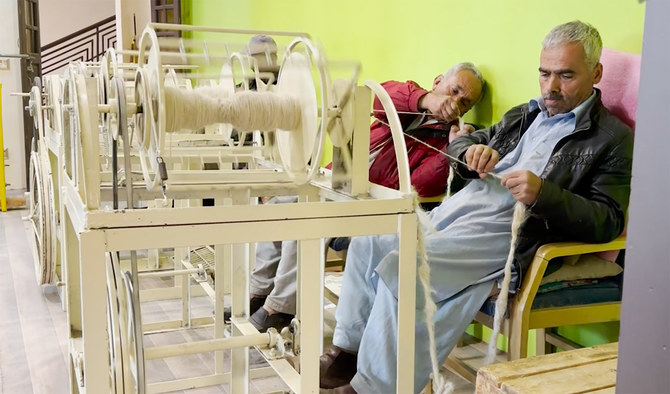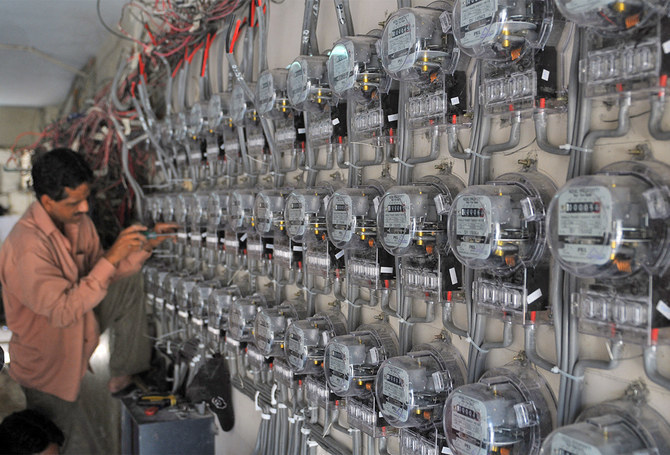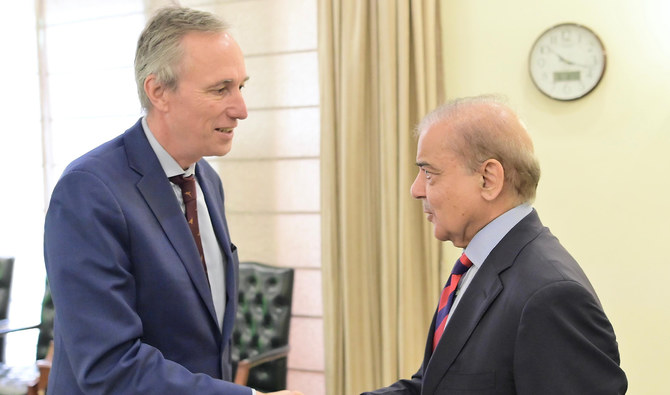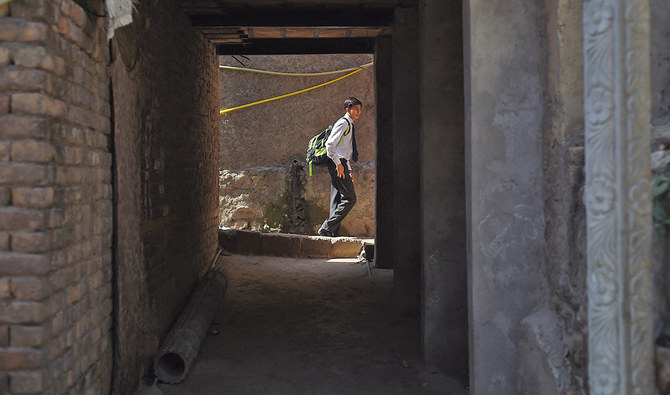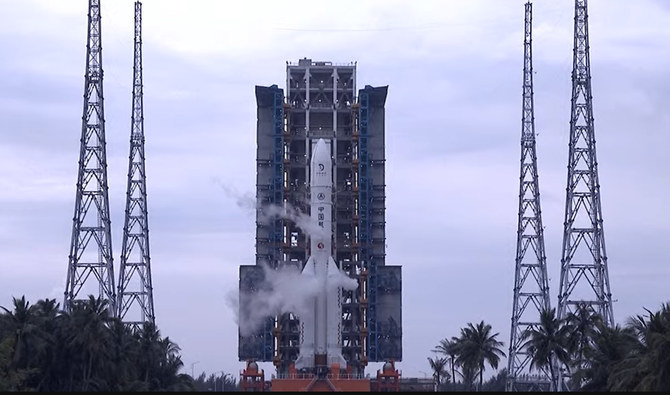HUNZA: In Pakistan's mountainous northern Gilgit-Baltistan (GB) region, a non-profit organization imparts a mix of traditional and modern skills to the local community and its marginalized members, in its bid to promote sustainable development in the economically backward region.
Since 1947, GB has not officially been part of Pakistan but forms part of the portion of disputed Kashmir that is administered by Pakistan but claimed by India. The region is Pakistan’s only land link to China and is at the heart of the $65 billion China-Pakistan Economic Corridor (CPEC) infrastructure development plan. Its residents, however, have suffered from economic neglect and lack of infrastructural development.
Established in 1998, the Karakorum Area Development Organization (KADO) in Hunza Valley is a donor-driven organization that has partnered with national and international organizations such as the UN Women, Agha Khan Development Network, and USAID. KADO aims to promote entrepreneurship, and social and economic growth in the area.
"This facility [offers] a blend of traditional and future skills," Khayam M Beg, KADO's chief executive officer, told Arab News this week during a visit organized by the government for journalists.
"On the ground floor and basement, we have traditional and vocational training going on whereas on the first floor, which is the Digital Hub Hunza, it is sort of an IT park," Beg said.
KADO's programs aim to reduce poverty for women, the youth, and persons with disabilities. They focus on various themes such as economic, IT, and communication development, climate change measures and environment management.
The Digital Hub Hunza initiative was introduced by KADO six months ago. It offers a space with an uninterrupted power supply and internet for entrepreneurs, digital nomads, and remote workers.
Poor internet and frequent power outages—especially during the summer—plague GB which is home to 127 hydel and 34 thermal stations.
Currently, the hub is used by 50 coworkers and six startups who pay as low as Rs5,000 ($18) per month to use the facility.
"Coworkers can be anyone from remote workers, digital nomads, and gig workers," Nur Al-Abidin Baig, Digital Hub Hunza's manager, told Arab News.
Baig said KADO prioritizes people working in and for GB's development so that it would have a "spillover effect" and boost entrepreneurial skills among its residents.
"What help it [digital hub] does is that it provides them with fast internet and a 24/7 facility which is solar-backed,” Baig added.
"It can accommodate up to 70 people at times during May to June or July when there are holidays."
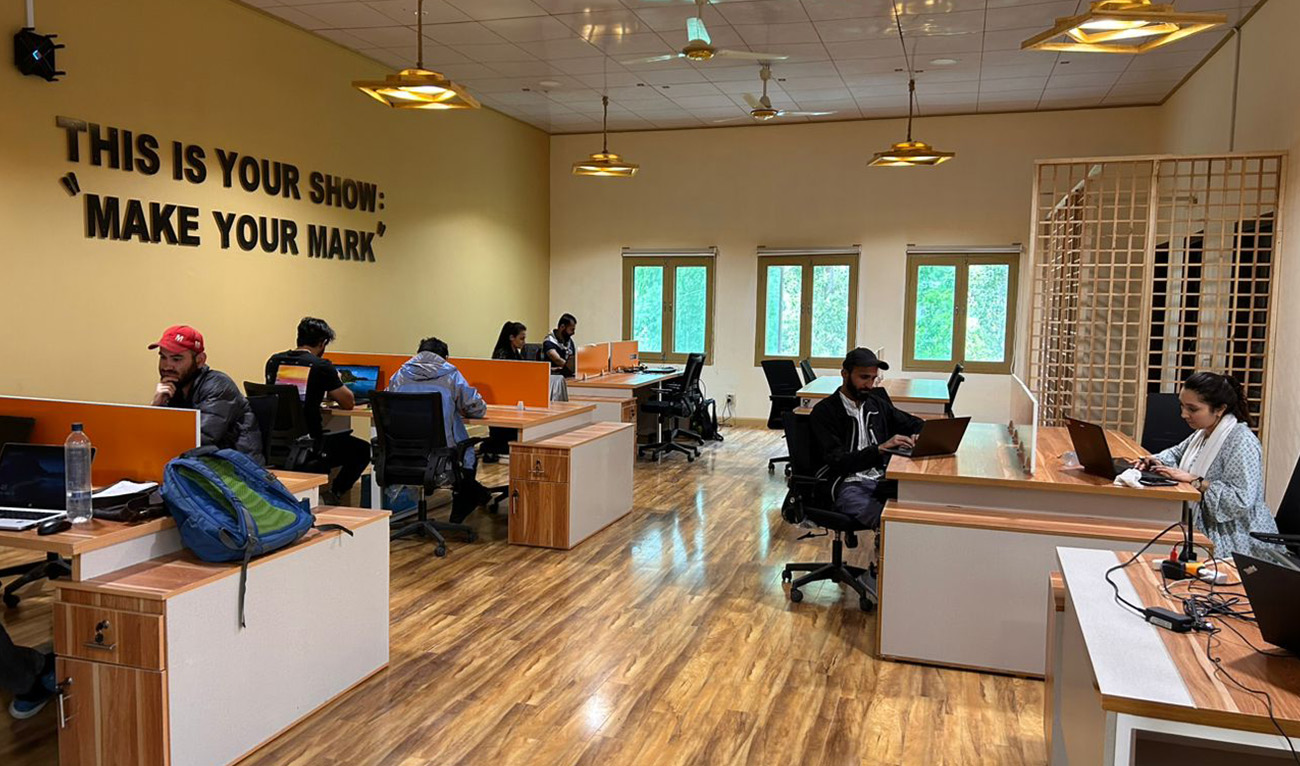
The photo taken on May 30, 2023, shows the Digital Hub Hunza set up by the Karakorum Area Development Organization in Hunza, Pakistan. (Photo courtesy: KADO)
Bashir Uddin, who runs a startup named E-Shepherd Technologies, moved to Hunza from Rawalpindi in March this year with his team. They aimed to cut operational costs and according to Bashir Uddin, it brought about a beneficial "change" in their revenues.
"The rents we used to give in the cities have also almost ended," he told Arab News. "Other than that, facilities such as electricity and internet here are cheap as compared to [other] cities."
The digital hub has imparted IT skills to over 1,000 people so far, out of which 60 percent were women, KADO said.
Another flagship program of the non-profit is the Sharma Center Project, which aims to rehabilitate persons with disabilities by training them in vocational and income-earning skills. Skills taught at the center include rug weaving, spinning, painting, and embroidery. It also helps them market their products so they can earn a decent living.
Thirty artisans are currently working with KADO whereas the organization says it has trained 300 persons since the program's inception.
The artisans are usually divided into two groups – the first one comprises individuals who require less assistance. They are taught to weave rugs whereas the other group is taught to separate goat hair strands that are used to make traditional rugs.
These artisans work from almost 10:00 a.m. to 3:00 p.m. with lunch, music, and tea breaks in between.
"We call them artisans, we don’t call them persons with disabilities," Baig said.



